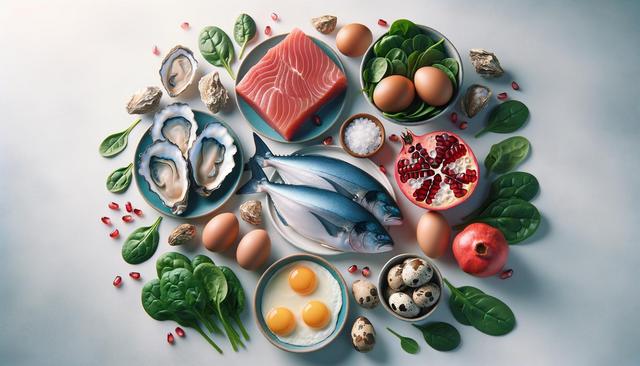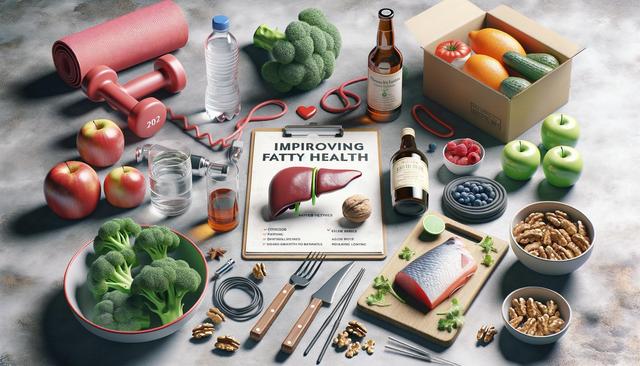The Role of Nutrition in Testosterone Production
Testosterone is a crucial hormone involved in muscle growth, fat distribution, mood regulation, and libido. While the body produces testosterone naturally, certain foods can help support and maintain healthy levels. Nutritional deficiencies, particularly of zinc, magnesium, and vitamin D, have been linked to reduced testosterone. Therefore, incorporating specific foods into your diet can be a practical and natural way to enhance hormonal balance. Whole foods are particularly effective because they offer a mix of essential nutrients along with fiber and antioxidants, which together support general well-being and endocrine function.
Testosterone production is influenced by lifestyle factors such as sleep, exercise, and stress, but nutrition plays a foundational role. Diets high in processed foods and low in micronutrients can disrupt hormonal balance, whereas nutrient-rich diets support optimal production. The body relies on a variety of vitamins and minerals for the biosynthesis of testosterone, and many of these are best obtained through food rather than supplements.
Foods Rich in Zinc: Key to Hormonal Support
Zinc is one of the most important minerals for testosterone production. It plays a direct role in the synthesis of this hormone and helps prevent its conversion into estrogen. Foods high in zinc can be easily incorporated into daily meals and are known for their role in supporting male reproductive health. Some excellent choices include:
- Oysters – among the richest sources of zinc
- Beef and lamb – particularly in grass-fed varieties
- Pumpkin seeds – a plant-based option packed with zinc
- Chickpeas and lentils – good for vegetarians
Regular consumption of these foods can help maintain adequate zinc levels, particularly in individuals who engage in intense physical activity or have diets low in animal products. A deficiency in zinc has been linked to hypogonadism, a condition characterized by low testosterone production. Including these foods can help support natural hormone levels without the need for supplementation, especially when combined with a balanced diet overall.
Magnesium and Leafy Greens for Hormonal Balance
Magnesium is another mineral associated with testosterone regulation. It is involved in hundreds of biochemical reactions in the body, including those that influence hormone levels. Studies suggest that magnesium supplementation can improve testosterone levels, particularly in active individuals. Fortunately, many magnesium-rich foods are easy to include in your diet:
- Spinach and swiss chard
- Dark chocolate (in moderation)
- Almonds and cashews
- Avocados
Leafy greens, in particular, provide a double benefit: they are rich in both magnesium and antioxidants. These nutrients help reduce oxidative stress, which is known to negatively affect testosterone. A diet that includes a variety of greens not only supports hormone health but also contributes to cardiovascular and digestive health, making them a smart addition to daily meal planning.
Fatty Fish and Vitamin D: A Powerful Combination
Vitamin D is often referred to as a hormone because of the significant role it plays in the endocrine system. It’s been strongly linked with testosterone levels in numerous studies. People with higher vitamin D levels tend to have higher testosterone levels, and supplementation has shown positive outcomes in individuals with existing deficiencies. Fatty fish are among the top food sources of this nutrient:
- Salmon
- Mackerel
- Sardines
- Trout
These fish are also rich in omega-3 fatty acids, which help reduce inflammation and support heart and brain health. Omega-3s may also indirectly support testosterone by reducing stress hormones such as cortisol, which can negatively affect testosterone production when elevated. Including fatty fish in your diet two to three times a week is a practical approach for supporting vitamin D intake and overall hormonal health.
Healthy Fats and Testosterone Function
Dietary fat is essential for hormone production, including testosterone. Low-fat diets have been associated with lower testosterone levels, especially when the fats consumed are primarily unsaturated or derived from processed sources. Including a variety of healthy fats in your diet can support hormone synthesis and improve energy levels. Key sources include:
- Olive oil – rich in monounsaturated fats
- Egg yolks – contain cholesterol, which is a precursor to testosterone
- Nuts and seeds – provide a balance of fats and micronutrients
- Coconut oil – offers saturated fats that may support hormone production
It’s important to differentiate between healthy fats and trans fats or heavily processed oils, which can have the opposite effect on hormone health. A diet that includes moderate amounts of healthy fat, especially from whole food sources, can contribute to maintaining optimal testosterone levels, especially when paired with regular physical activity and adequate sleep.
Conclusion: Building a Testosterone-Friendly Diet
For individuals looking to support their testosterone levels naturally, focusing on whole, nutrient-dense foods is a sustainable and effective strategy. Incorporating foods rich in zinc, magnesium, vitamin D, and healthy fats not only supports hormone health but also contributes to overall wellness. By emphasizing variety—lean proteins, leafy greens, fatty fish, and nuts—you can create a balanced diet that fuels both energy and hormonal function. While no single food guarantees a hormonal boost, consistent dietary habits rooted in natural sources can make a measurable difference over time.


